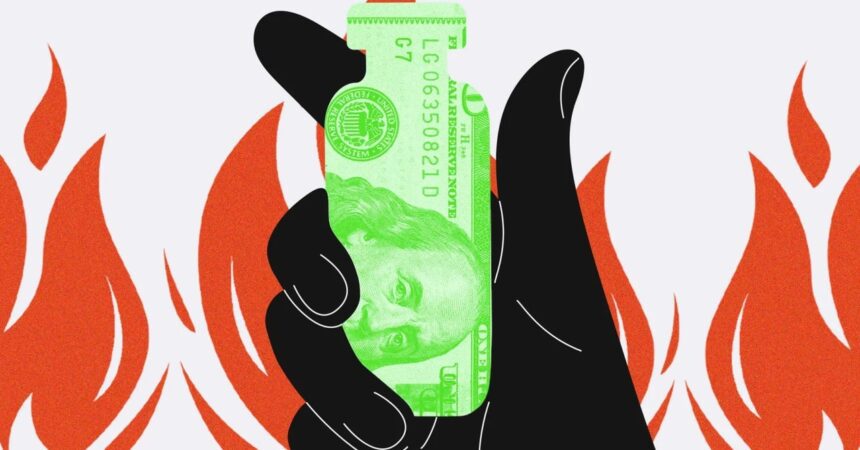The Convergence of Wellness Influencers and Climate Disasters: A Critical Examination
As the world grapples with increasing climate crises, from severe droughts to massive wildfires, a troubling trend has emerged: wellness influencers are exploiting these disasters to market a range of products purported to mitigate their effects. Recent wildfires in Los Angeles serve as a poignant case study in this phenomenon, raising ethical questions about the intersection of public health, profit, and misinformation.
The Los Angeles Wildfires and the Rise of Influencer Marketing
In early January 2023, wildfires engulfed large areas of Los Angeles, prompting immediate public health concerns regarding the air quality and health impacts of smoke inhalation. Amidst this chaos, voices from the wellness industry began flooding social media platforms like Instagram and TikTok, promoting an array of “solutions” that range from tinctures to essential oils. Mallory DeMille, a correspondent for the podcast Conspirituality, noted the alarming speed at which individuals attempted to monetize this crisis, framing it as “heartbreaking and really irresponsible.”
The concern is not merely that these products are being marketed, but that many influencers lack credible evidence to support their claims. For example, recommendations for detoxing through activated charcoal—often promoted for various ailments—have no basis in scientific literature when discussing its effects on lung health or overall detoxification.
The Problematic Nature of “Detox” Culture
The notion that one can "detox" their body is a pervasive myth in wellness culture. Medical experts emphasize that the human body is fully capable of detoxification through its own liver and kidney processes. Many supplements and wellness products marketed as detoxifiers can pose risks, sometimes interacting negatively with prescribed medications. The promotion of such products in the context of an environmental disaster, therefore, raises significant ethical concerns.
Ginger DeClue, a detox influencer, controversially stated that the wildfires were a form of divine retribution against the moral failings of Los Angeles, categorizing her narrative within a larger trend of blaming societal issues for natural disasters. This rhetoric not only lacks empathy but distracts from the real health impacts of such disasters, instead providing a toxic blend of judgment and profit-driven advice.
Common Sense Vs. Commercialized Responses
While some wellness influencers have suggested reasonable and scientifically supported tactics—like using air purifiers, saline nasal sprays, and wearing protective masks outside—many are still pushing products they have a financial stake in, often pairing health advice with affiliate links or discount codes. DeMille questions the integrity of these influencers, wondering how followers can trust their recommendations when financial gain is at the forefront.
A Perpetual Cycle: Crisis and Capitalization
The commercialization of crises is not a new phenomenon. During the COVID-19 pandemic, wellness influencers similarly pivoted their marketing strategies to include products that “supported” immunity and promoted detox plans against perceived vaccine side effects. The pattern follows a troubling trajectory in which personal tragedies evolve into collective ones, and wellness influencers are quick to adapt, creating marketing hooks from societal despair.
As climate disasters become more frequent, the market for wellness products will likely continue to thrive. This raises pressing questions about the role of social media in public health, the responsibility of influencers, and the broader implications of promoting unverified treatments during times of crisis.
Conclusion: The Need for Accountability
As consumers, it is vital to maintain a critical lens when navigating the often-overwhelming world of health information. It is imperative to question the motivations behind wellness advice and advocate for evidence-based practices supported by qualified health professionals. The intersection of climate disasters and wellness marketing should prompt us to engage in thoughtful discussions about health, ethics, and the need for accountability in the wellness industry. Only then can society begin to dismantle harmful myths and promote genuine, scientifically-backed health practices in the face of adversity.










